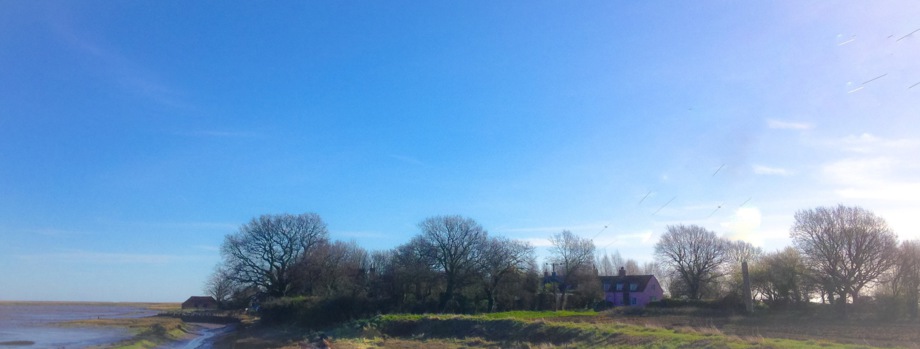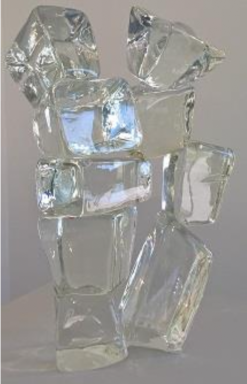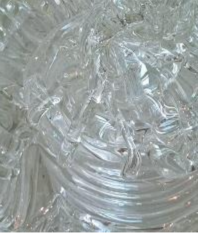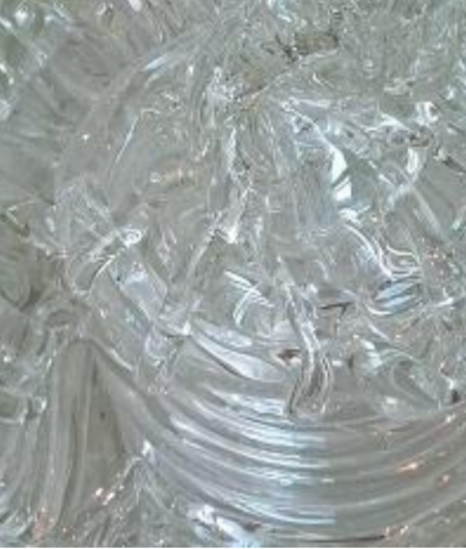
From the Journal of the Experiment with Light
Pandora’s Box – holding hope Susan Norris
Eastern Region Light Gathering 8 July 2017
It was another warm day for this gathering at the very welcoming and comfortable Hartington Grove Friends’ Meeting House in Cambridge.
At the start of the day on meeting Friends
new to me, I found myself describing how I had first encountered Experiment with Light. Basically, I had come across the website. With a longstanding personal interest in meditation and as a
registered Art Therapist, I was familiar with various adaptions of mindfulness including Eugene Gendlin’s work on focusing. I had never been to a Quaker meeting although I had thought about it from
time to time and I probably would not have gone to my first meeting for worship had it not been for the Experiment. Once I had attended Meeting for
Worship I was lucky enough to have that sense of having ‘come home’. The Experiment accompanied me into membership and I am now an elder and the Experiment has continued to hold me with tough love. I
find it helpful to practice alone where I can really let go and make images as well as write but I also appreciate the Light
groups I’ve experienced.
In her introduction to the day Mary Pennock informed us that we would do an Experiment on the world in the afternoon and acknowledged something of the turbulence and devastation that is around in our
world. She referred to Rabbi Jonathan Sacks’ recent Thought for the Day on BBC Radio 4 about how, in the throes of relentless change it is important to have a sense of identity, a vision for the
future and hope. These words struck a chord which I found myself returning to later.
Mary introduced our speaker, Caroline Kennedy, who gave a wonderful presentation about early Friends and how we might consider the similarities and differences between their world and ours. She
reminded us:
This fits with the view of one famous quantum physicist, Erwin Schrödinger: “Our perceiving self is nowhere to be found within the world-picture, because it itself is the world-picture.”
Peter Russell, a prominent writer on the subjects of consciousness and spirituality writes: “The light of consciousness shining in me, is
the same light that shines in you. If God is the light – or what lies behind the light – then one manifestation of God is as the light of consciousness shining within every one of us. This
realization leads to one of the most contentious and confusing of all mystical assertions– the statement ‘I am God.’”
And, fitting the purpose of these notes is H.D. Thoreau’s challenge: “With all your science can you tell how it is, and whence it is, that light comes into the soul?”
The answer to Thoreau’s question is surely no, or at least not yet...
SCIENCE AND LIGHT
On the science side there have however been some remarkable discoveries on the nature of light that could one day be relevant to unravelling
the mystery of how the Experiment works: Recent findings that captured my imagination:
Biophoton emission. Light emission, albeit at a low level, is common to all living cells. In humans this is affected by many
situations, and is enhanced by actually visualising light. Identified decades ago in Russia, biophotons have only recently been subjected to scientific investigation. Under specific conditions human
photon emission can involve quantum ‘entanglement’, individuals responding together. (In quantum physics entangled particles are connected, influencing each other however far
apart.)
http://m.greenmedinfo.com/blog/biophotons-human-body-emits-communicates-and-made-light
http://citeseerx.ist.psu.edu/viewdoc/download?doi=10.1.1.377.1727&rep=rep1&type=pdf
http://www.bibliotecapleyades.net/ciencia/ciencia_fuerzasuniverso06.htm
Entanglement and photosynthesis. One of the first living systems in which quantum processes (previously considered only relevant at
subatomic and low temperature levels) have been implicated is photosynthesis. This is because only a quantum process can account for the
near perfect efficiency of energy delivery in photosynthesis. In this scenario, the photon is ‘everywhere’ scanning
all possible options in order to choose the most efficient path for interaction, before it links to one molecule of chlorophyll that captures and converts the energy. ( A similar principle applies in
quantum computing.)
http://phys.org/news/2014-01-quantum-mechanics-efficiency-photosynthesis.html#jCp
http://io9.gizmodo.com/new-evidence-that-plants-get-their-energy-using-quantum-1498695627
Phototherapy. There has been an explosion of scientific papers in the last few years on light therapy. These show how exposure to light benefits many body/mind conditions like pain, psoriasis, heliobacter, wound and muscle healing. Around a thousand peer- reviewed articles on light therapy were published in 2016 alone in the ‘PubMed’ web library of peer reviewed scientific and medical papers. And these are in addition to the many past and present papers on better known benefits for people with SAD (seasonal affective disorder).
https://www.ncbi.nlm.nih.gov/pmc/?term=phototherapy
EXTRAORDINARY CONCEPTS
Then there are so many more, previously well known, but still extraordinary, concepts about light that may also be relevant to the
Experiment: for example:
• Unimaginable origins: light emerged from darkness in a universe arising from nothing and nowhere.
• Paradoxical nature: matter is without mass; light has energy and momentum but no mass; and the photon has dual form - wave and
particle.
• Time warping: time differs according to the perspective of the observer. For example to the eye of an observer not travelling at
the speed of light, time stands still for someone travelling at the speed of light. And then there are the photons that hit the retina from stars some of which are not only billions of light years
away but are also long gone today.
• The light of consciousnesss: there is no objective visible light or colour. It is consciousness that converts the effects of light,
interacting with retinal cells that send signals to the brain, into subjective experiences of lightness. Consciousness thus lightens the darkness of an objective world.
http://www.peterrussell.com/SG/Ch6.php
• ‘Only’ energy: in subatomic physics, not only light (and other electromagnetic radiations) but all subatomic so-called particles, and hence the entire universe including us, are pure energy, not matter. The view that the universe is pure energy was, incidentally expressed by ancient rishis (seers or sages who, thousands of years ago uncovered ‘truths’ after intense meditation).
http://www.lifetrainings.com/We-are-made-of-Energy-not-Matter.html
With such an intriguing background on the science of light, one question is: could or should the Experiment be subjected to some kind of
scientific method? The aim and method are clear, but is there a place for any intervention that might alter the outcome, or for systematic analysis of results (confidentiality maintained)? Why?
Because consciousness seems to me the greatest mystery and a meeting of modern science and ancient wisdom may be enlightening.
I see science and spirituality as different aspects of human experience that can be considered together, potentially to the advantage of each. Those who consider that science and spirituality sit in
strictly separate realms may be interested in initiatives of some scientists and medics to embrace the two. In the UK there is the Scientific and Medical Network,
https://explore.scimednet.org/, and the USA SANDS (Science and nonduality)
https://www.scienceandnonduality.com/?gclid=CNn79s39ptECFRW3GwodKr4FYg
From issue 22
Articles, images and artwork in this journal are copyright to the authors, makers and photographers.


